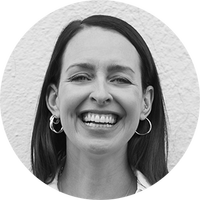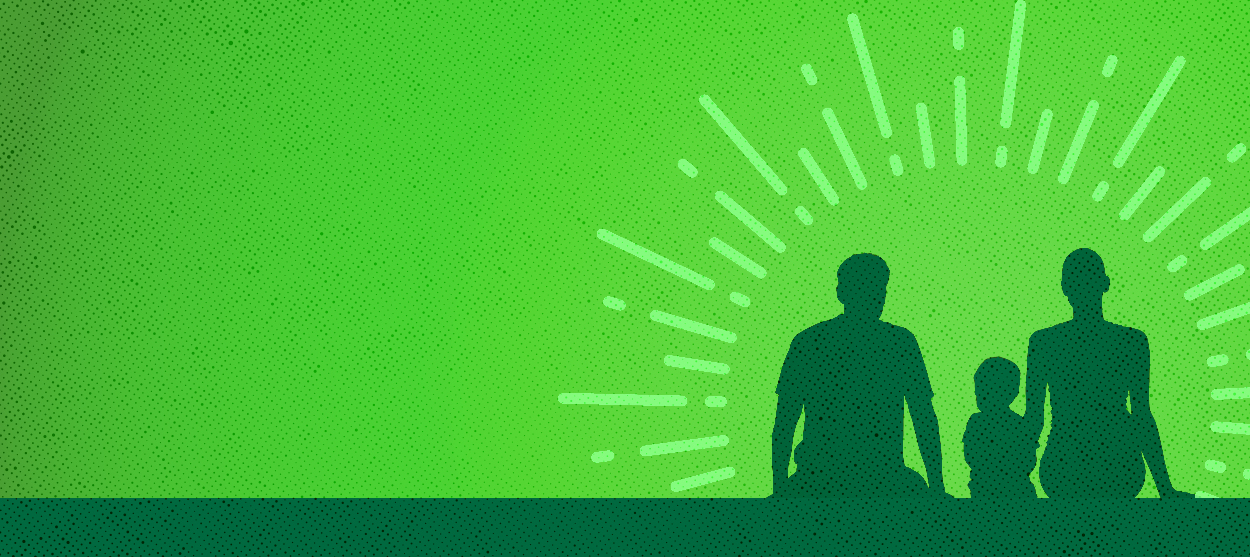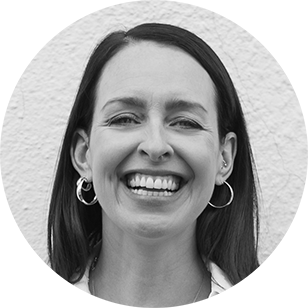What is platonic parenting?
Does co-parenting without romantic involvement make sense?


A free daily email with the biggest news stories of the day – and the best features from TheWeek.com
You are now subscribed
Your newsletter sign-up was successful
What's a "normal" family in 2020? There's only one answer: Whatever you want it to be.
How we define family is changing. While the traditional "married with children" approach is still very common, other options are growing in popularity. One such family structure relies on so-called "platonic parenting," perhaps more commonly referred to as "co-parenting."
In platonic parenting, parents raise children together but are not romantically involved. Maybe you want kids but haven't found "The One.” Maybe you don't believe in all that soulmate stuff anyway. Or maybe you just like the idea of raising a child alongside someone else, but without any of the romantic complications.
The Week
Escape your echo chamber. Get the facts behind the news, plus analysis from multiple perspectives.

Sign up for The Week's Free Newsletters
From our morning news briefing to a weekly Good News Newsletter, get the best of The Week delivered directly to your inbox.
From our morning news briefing to a weekly Good News Newsletter, get the best of The Week delivered directly to your inbox.
Ivan Fatovic founded Modamily in 2011 to connect people who want to become parents in a variety of ways, whether via a romantic relationship, egg donation, surrogacy, or platonic co-parenting. He typically sees platonic co-parenting when the parties involved are of different sexual orientations, but says he sees platonic co-parenting becoming more common, "as millions around the world are putting off starting a family while they focus on career advancement and having life experiences."
But what does platonic parenting look like in practice?
For Rachel Hope from Los Angeles, author of Family By Choice: Platonic Partnered Parenting, the decision to try platonic parenting came down to two things: avoiding the risk of divorce (which she describes as being the catalyst that lead to her "emotional, mental, and financial chaos") and ensuring, as a queer woman, that her children didn't have a "fatherless family."
"I didn't want to risk missing out on my deepest desire, to be a mother in an intact family," she says. "I had to solve the problem."
A free daily email with the biggest news stories of the day – and the best features from TheWeek.com
She met Glenn in the 1980s. After they co-founded a grassroots environmental organization, they realized that their compatibility as business partners could have potential elsewhere. Glenn wanted to become a hands-on father, but he was 18 years older than Rachel and had tapped out his earning potential, where as Rachel was on the "upswing" of her career. "We were a very effective team and found each other's strengths amazingly complementary," Rachel says. "We challenged each other and this created a strong base of respect between us."
They conceived their son, Jesse, now 29, "the old fashioned way," Rachel says, but with the understanding that they were not romantically committed. They were companions. "I picked the best father I could for my son, free from romantic concerns," she says. "Glenn and I consciously negotiated a custom-designed family based on shared values and a full commitment to an intact family."
Although they weren't involved romantically, Rachel and Glenn lived in the same house when Jesse was a baby. "That was hard, with our different personalities," Rachel admits. Eventually they settled on two homes, side-by-side.
While Glenn felt fulfilled with just one son, Rachel eventually felt ready for more kids. At this point, Paul Wenner, Jesse's godfather and a longtime family friend, became Rachel's next platonic parenting partner and the father of her daughter Grace, who's now 11. Paul wanted to be a father, but not a hands-on one, while Rachel wanted a turn to stay home with kids. Paul was one of the few people she knew who was in the financial bracket to enable her to do that. "The plan was for Glenn to help me raise two more kids," she says.
But the custom designed family, with every detail negotiated and recorded in a written partnered parenting contract, wasn't flawless. Financial problems and health issues led to "much hardship and heartbreak," and the agreement had to be renegotiated.
Rachel and Paul are now Grace's hands-on parents, and lived together for many years. Paul has his own home a short walk away, but they spend a lot of time together at Rachel's house — Paul even has his own room. "He stays over much of the weekdays to help Grace with homework, something he's much better at than I am," Rachel says. "He is 73 now and says that although this wasn't what he thought he'd be doing at this age, he is thrilled about his bond with Grace."
Yes, it's complicated. And there's more to come. Rachel has four cryo-frozen embryos and plans to have one transferred this spring. The father of the "little girl embryo" is Drew, a retired emergency medical doctor who has an adult son from a previous platonic parenting partnership. He and Rachel met on Modamily. "Drew has the time to further his dream of being a more hands-on parent this time around," Rachel says.
So where does Drew fit into this modern family? Rachel says she, Paul, and Grace will live side-by-side with Drew in what she describes as a "family compound."
There's a lot to work out. Critics of platonic parenting express concern that kids will suffer if their parents aren't in love with each other. How will they learn about romantic love if they don't see it in their home? Rachel admits she feels sad that her children haven't been able to witness romantic intimacy between their parents, but maintains that her choice was better than facing the odds of a messy, painful breakup. She says she's "relied heavily on the happy, health couples in our community to be those role models."
"Any relationship/family is only as good as the people in it," she says, and surely that's what it all comes down to, whether you're in a platonic parenting partnership, a single-parent family, a traditional nuclear family, or something else entirely.
Want more essential commentary and analysis like this delivered straight to your inbox? Sign up for The Week's "Today's best articles" newsletter here.
Claire Gillespie is a freelance writer with bylines on Health, SELF, Refinery29, Glamour, The Washington Post, and many more. She likes to write about parenting, health, and culture. She lives in Scotland with her husband and six kids, where she uses every (rare) spare moment to work on her novel.
-
 6 of the world’s most accessible destinations
6 of the world’s most accessible destinationsThe Week Recommends Experience all of Berlin, Singapore and Sydney
-
 How the FCC’s ‘equal time’ rule works
How the FCC’s ‘equal time’ rule worksIn the Spotlight The law is at the heart of the Colbert-CBS conflict
-
 What is the endgame in the DHS shutdown?
What is the endgame in the DHS shutdown?Today’s Big Question Democrats want to rein in ICE’s immigration crackdown
